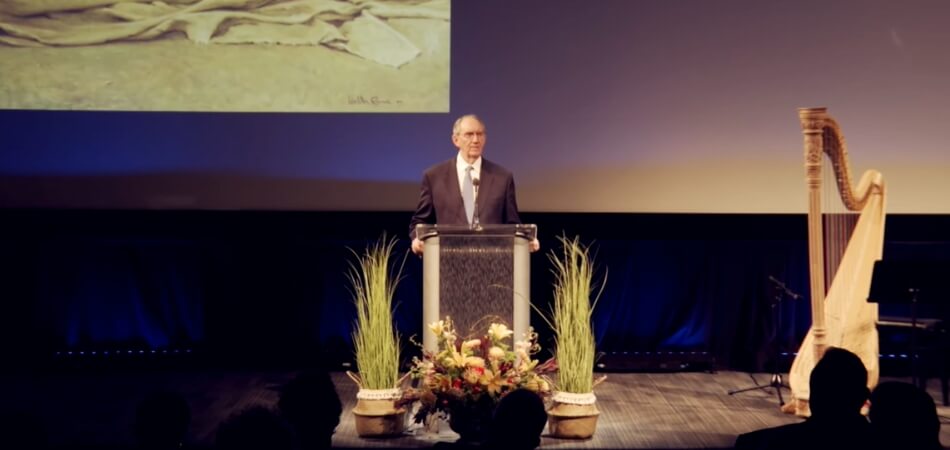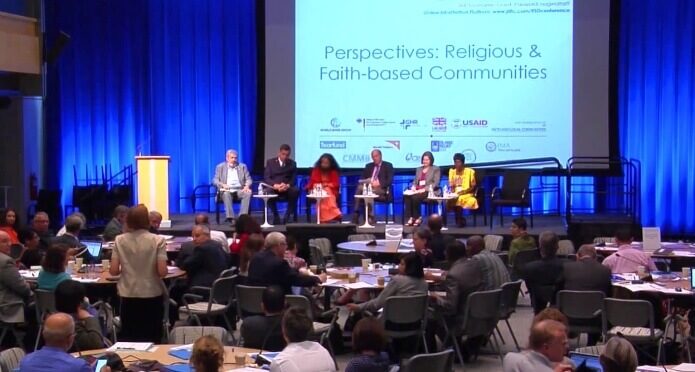Nowadays, numerous organizations emerge with the mission to address pressing issues. Among these is a unique international group that piques significant interest in what is the Religious Studies and Peace Conference.
At its core, it is a gathering of dedicated men and women from different corners of the world. These individuals come together with a shared purpose: to express their concerns about the myriad factors and circumstances that undermine world peace and strip away human dignity.
The conference serves as a platform for these passionate individuals to unite, share insights, and work towards creating a harmonious world. As we delve deeper into this topic, we’ll uncover the significance of this organization and its contribution to global peace.
What is the Religious Studies and Peace Conference?
In an age where global challenges abound, collective efforts arise to meet them head-on. Among such initiatives stands a remarkable gathering: the Religious Studies and Peace Conference. This organization embodies the aspirations of many for a harmonious future. But what is the religious studies and peace conference, exactly?

The Religious Studies and Peace Conference is an international confluence of dedicated individuals. Representing diverse backgrounds, these men and women convene with a shared vision. Their primary aim is to address threats to world peace and challenges to human dignity.
Drawn from various religious and scholarly disciplines, participants explore deep-seated societal issues. They dissect factors that disrupt global harmony and seek innovative solutions. Through dialogue, they uncover avenues to promote unity and respect among diverse communities.
By uniting voices from different parts of the world, this conference fosters understanding and collaboration. The gatherings provide a platform for meaningful discussions and actionable strategies. As a result, the organization plays a pivotal role in forwarding global peace initiatives.
Different Types of Religious Studies and Peace Conferences
Religious studies and peace conferences come in diverse forms, each with a distinct focus. These forums differ based on their objectives, methodologies, and participants. Recognizing these variations provides deeper insights into their impact on global peace initiatives.
Interfaith Dialogues
Interfaith dialogues prioritize understanding among different religious groups. They emphasize shared values, fostering respect, and dispelling myths. Through open conversations, they bridge divides and promote unity.
Theological Symposia
Theological symposia explore religious teachings and their interpretations. Scholars discuss doctrinal intricacies and their implications for peace. This deep dive facilitates informed perspectives on potential conflict resolutions.
Conflict Resolution Workshops
These workshops use religious teachings to address ongoing conflicts. Participants identify ways in which faith can mediate disputes. The ultimate goal is fostering reconciliation and understanding.
Cultural Exchange Programs
Cultural exchange programs highlight the role of religion in different societies. Participants experience diverse religious practices firsthand, promoting mutual respect. It’s a vivid demonstration of faith’s multifaceted expressions worldwide.
Understanding the various types of religious studies and peace conferences underscores their importance in today’s world. By catering to different needs and audiences, they collectively contribute to a world where religious understanding paves the way for global harmony.
Who Should Attend the Religious Studies and Peace Conference?
The Religious Studies and Peace Conference attracts a wide range of attendees. But who should really attend? Let’s dive into the specific groups that can benefit most from such gatherings.

Religious Leaders and Theologians
Religious leaders hold influence within their communities. Their participation aids in understanding doctrines that promote peace and harmony. Engaging in the conference can refine their teachings, emphasizing unity.
Theologians, on the other hand, delve deep into religious texts. Their presence provides scholarly insights, bridging gaps in interpretation. They ensure discussions remain rooted in historical and doctrinal contexts.
Academics and Researchers
Academics study the societal impacts of religion. Their findings can inform strategies for peace-building and conflict resolution. Sharing their research at the conference magnifies its reach and influence.
Researchers, specifically those in peace and conflict studies, bring data-driven insights. They can present case studies, revealing patterns in religious conflicts. Their evidence-based approach grounds discussions in reality.
Policy Makers and Diplomats
Government officials craft policies that influence religious interactions. Attending the conference informs their decisions, ensuring they’re inclusive and peace-promoting. It’s essential for creating harmonious multi-religious societies.
Diplomats often navigate complex inter-religious international relations. Their participation in such conferences sharpens their understanding of faith-based nuances. This equips them to handle sensitive negotiations adeptly.
While the Religious Studies and Peace Conference welcomes all, the mentioned groups stand to gain profoundly. Their involvement not only enriches discussions but also ensures the ripple effect of the conference’s outcomes reaches far and wide.
Why Should You Attend the Religious Studies and Peace Conference?
The Religious Studies and Peace Conference offers unique experiences and learnings. If you’re considering attendance, here are compelling reasons to make that decision.
- Broadened Understanding: Engage with diverse religious perspectives. This exposure enriches knowledge and promotes global-mindedness.
- Networking Opportunities: Meet thought leaders, scholars, and activists. These connections can be invaluable for personal and professional growth.
- Skill Development: Acquire conflict resolution and peace-building skills. These competencies are pivotal in diverse settings, from communities to global platforms.
- Research Insights: Access the latest studies on religion and peace. Staying updated is crucial for educators, leaders, and policymakers.
- Personal Growth: Engage in self-reflection and spiritual exploration. The conference environment fosters personal development and growth.
- Influence Change: Play an active role in peace initiatives. Your involvement can contribute to broader societal transformations.
Attending the Religious Studies and Peace Conference is more than just participation; it’s an investment in personal enrichment and global harmony. Whether you’re a scholar, activist, or just curious, the insights and connections gained can be transformative.
Featured Events of a Religious Studies and Peace Conference
Attending a Religious Studies and Peace Conference is a rewarding experience due to a plethora of events designed to engage, educate, and inspire participants. Here are some featured events you might encounter:

- Keynote Speeches: Renowned religious scholars, peace activists, and global leaders share their insights and experiences. Their speeches set the tone for the conference and inspire the attendees.
- Panel Discussions: Diverse experts come together to discuss relevant topics. These interactive sessions encourage audience participation, fostering a deeper understanding of the subject matter.
- Workshops: Focused on skill-building, these sessions might cover topics like conflict resolution, interfaith dialogue techniques, or religious literacy. Attendees get hands-on experience and practical skills.
- Cultural Experiences: These can range from musical performances to art displays, showcasing the rich tapestry of religious traditions from around the world. They highlight the beauty and diversity of faiths.
- Research Presentations: Academics and researchers share their latest findings on religion’s impact on society, potential conflicts, and the paths to peace.
- Networking Events: Informal gatherings, perhaps over meals or coffee breaks, allow attendees to connect, share ideas, and possibly collaborate on future projects.
- Interfaith Prayer and Meditation Sessions: These sessions promote spiritual unity, allowing attendees from various faiths to come together in a shared spiritual experience.
- Interactive Exhibits: Booths or stands that display religious artifacts, literature, or multimedia presentations. They offer attendees a tactile and visual way to learn.
- Youth Engagements: Special events or sessions tailored for the younger generation. They might focus on how youth can be peace ambassadors in their communities.
- Field Trips: Depending on the conference location, attendees might visit religious sites, peace memorials, or communities known for interfaith harmony.
Remember, the exact events can vary based on the conference’s theme, the organizers, and the location. However, the overarching goal remains consistent: promoting understanding, peace, and collaboration among diverse religious groups.
Tips to Find the Right Religious Studies and Peace Conference For You?
Selecting the right religious studies and peace conferences can be a daunting task. With so many events to choose from, focusing on specific criteria can ensure a fulfilling experience. Let these tips guide your selection process.
Understanding the Conference Organizers’ Background
Investigate the credibility and history of the event organizers. Are they known for providing insightful, well-planned conferences? A reputable organizing body often reflects the quality and depth of sessions and discussions you can anticipate.
Delving into the Conference Agenda
A comprehensive look at the conference agenda is crucial. Does it cover your specific areas of interest in religious studies and peace? The content should offer a balance between theoretical knowledge and practical insights, contributing to a deeper understanding of your field.
Analyzing the Caliber of Speakers
The influence and expertise of the speakers cannot be overstated. Are these experts respected within the religious and peace studies community? Their perspectives can challenge and expand your thinking, thereby enhancing your research and professional stance.
Assessing Location and Accessibility Factors
The event’s venue can significantly impact your experience. Is it located in a place that allows easy commuting and accessibility? Consider also the setting’s conduciveness to such discussions, ensuring it complements the gravity and serenity of subjects tackled.
Gathering Peer Recommendations and Reviews
Personal recommendations from trusted colleagues or mentors are invaluable. Have they attended conferences that profoundly impacted their thinking or career? Their experiences can guide you toward conferences that resonate with your academic and spiritual quest.
Embarking on this journey requires a thoughtful approach to decision-making. The right conference can be a cornerstone experience in one’s academic and personal journey. Thus, paying attention to these facets ensures an informed choice, propelling further growth in religious studies and peace endeavors.
Final Considerations
Understanding the dynamics of global peace and the role of religion in its promotion is vital. The Religious Studies and Peace Conference emerges as a beacon, illuminating the intersection of faith and harmony.
By asking, what is the Religious Studies and Peace Conference, we uncover a platform that bridges diverse perspectives, fosters meaningful dialogues, and catalyzes transformative actions. This international gathering not only addresses threats to peace but also champions human dignity.
For those dedicated to unity and understanding, the conference stands as an invaluable opportunity. In a world filled with complexities, such initiatives become pivotal, pushing us toward a harmonious future where respect for all reigns supreme.





